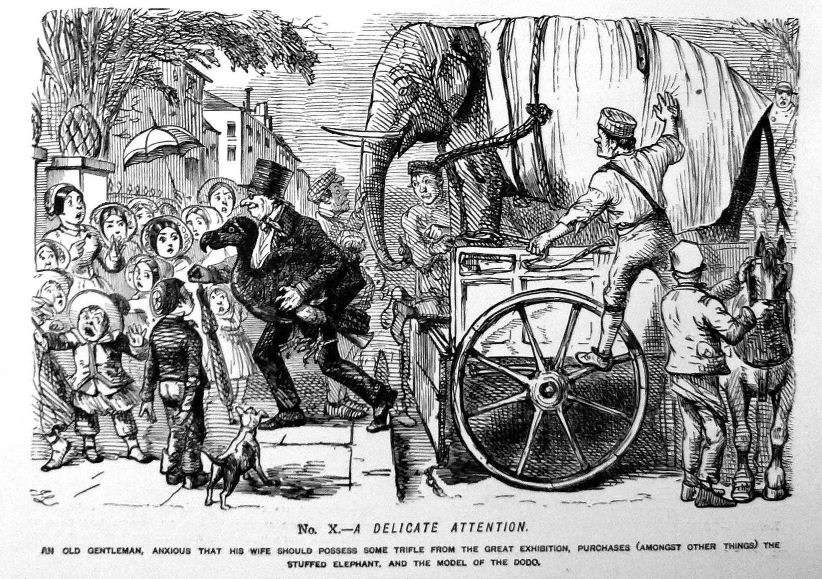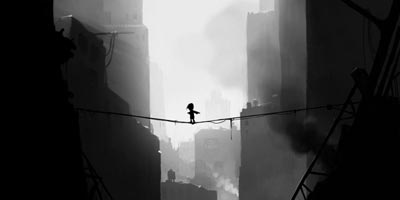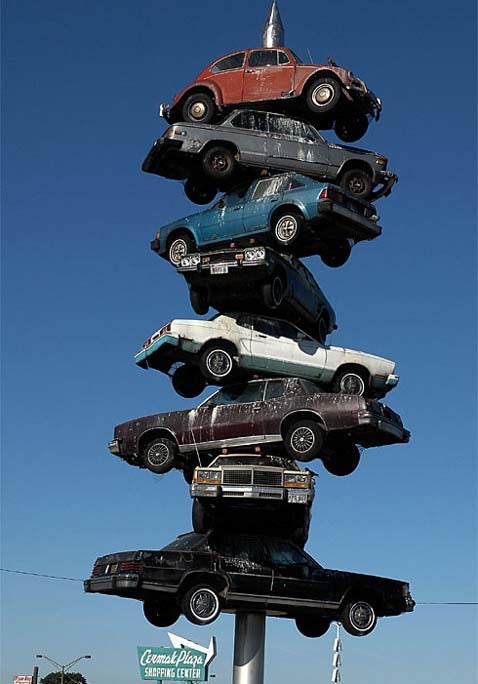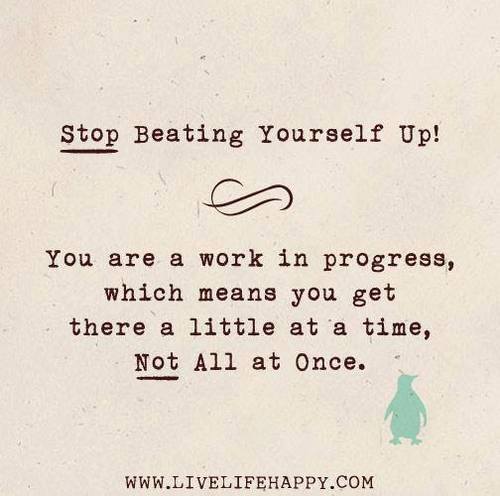What if I make a mistake? What if I need it after all? What if I'm effectively throwing money away? What if other people are upset that I don't own this particular thing any more? What if, what if, what if... Such a paralysing mental spiral of doubt.
It's something that's crept up on me over the years, a slow inexorable tide of indecision that's culminated in stuff coming into the house, and only obvious rubbish and recycling leaving the house. Net result? More coming in than going out.
That's probably fine if you're William Randolph Hurst the newspaper magnate who just kept buying stuff and eventually built a castle to keep it in - that's the guy that the film Citizen Kane was based on. I digress but actually that film is a great illustration of how a 'hoarder' was created. Or the Rothschilds with Waddesdon, or even the Bowes Lyons with their Bowes Museum. At least because the stuff they 'collected' or 'hoarded' is generally seen to have been expensive or have artistic value, they're seen as 'collectors'.
 |
| A still from a scene in Citizen Kane showing his 'collection' - hoarding? much? |
So, given I'm never going to have a house double or triple the size, short of winning the lottery which is somewhat unlikely as I don't buy tickets - how to stop my house being a 'static' repository of all things my magpie eye has lit upon, and turn it into a house where things flow in slowly and flow out faster?
Here's 3 ideas to have a mental munch on. Chew it over, have a think. Together with the other first steps, particularly the use of the Outbox, thinking about one's 'things' or possessions in the following ways might help us not be so scared about 'deciding':
1. HAVE NOTHING IN YOUR HOUSE THAT IS NOT EITHER USEFUL OR THAT YOU KNOW TO BE BEAUTIFUL
The first axiom is from William Morris. He was a nineteenth century wonder of a man who was both an industrialist and hugely concerned with the links between an object and their maker/ craftsperson. He worked with all sorts of people - the dye manufacturer who developed synthetic dyes that didn't run or fade significantly and he also worked with a series of artistic geniuses as well as actual industrialists and mass production techniques.
Most notably for me, he attended 'industrial exhibitions' of which perhaps the Great Exhibition planned and put on by Prince Albert in 1851 is the best known. Prince Albert was something of the Prince Charles of his day, for Albert it was artefacts, for Charles, it's architecture - both want(ed) it to be of high quality and useful. Prince Albert's concerns led to the formation of the Victoria and Albert Museum as a permanent public collection to encourage good design. He was also keen on marketing Britain's and the Empire's output to the general public both in the UK and globally.
 |
| I'm sure she was thrilled - who wouldn't want a stuffed elephant and dodo as souvenirs to clutter up their house! |
The key here is what YOU think is beautiful. That's down to personal taste. Others may think it's tat or mingingly ugly. Doesn't matter (unless it's a relationship breaker, then really, it's compromise time), it's what you LIKE that matters.
Considering he said that about 150 years ago, I think it's stood the test of time.
So, when I'm wondering about making decisions I ask myself - Does it work? Do I like it?
2. DOES THIS ITEM MAKE YOU HAPPY OR SAD?
I came across this idea in an old Channel 4 Hoarders programme recently. It seemed like a very odd question - why on earth would someone have something that made them sad in their house?
This Swan Automata from the Bowes Museum makes me happy!
Then I looked around my possessions (mentally cos I didn't feel like actually moving) and thought - do I have things that make me sad? is that a thing for me? It's something I've never really considered before.
Yeah, actually, all those expensive work suits - that represent who I was and probably can't be again - and my pushbike that was humungously costly that I justified thinking I could use it well into retirement - and the ski boots that I've had since 1993 but not used since 2007 -yeah, those things. They represent someone I'm not anymore, not through choice but through circumstance.
The things themselves don't make me sad. But what they represent in terms of who I was when I acquired them and used them? Yeah, that makes me very sad.
And honestly, say I could work again, those suits are out of fashion, and that bike, if I could ride one, I'd be getting one with an electric motor to help me out. And if I was able to go skiing, you can hire good boots for not much money these days!
Considering I bought a whole SHED for my garden that fitted my bike in last year, because I couldn't bear the idea that I would never cycle again and was hugely conscious of the expense of that bike? I now feel a bit foolish. But. That was where I was last year. This is where I am now. In terms of accepting the permanence of the severity of this illness, I've come a long way!
Also, books. I can't read them anymore. Can't hold them up. Can't concentrate. And I've found viable alternatives such as a Kindle e-reader and audiobooks.
Does it make me sad I can't immerse myself in a book anymore?
Yes, but in the same way the grief of losing a loved person, or pet is very sharp at first, over time, the edges of that grief dull. So for me, over the last 3 years or so, the grief of losing who I was before has dulled. I've found alternatives, I've found ways to do things differently, to have a reasonable quality of life (though I doubt most healthy people would recognise it as such, that doesn't matter. It's how I FEEL IN MYSELF AND ABOUT MYSELF that matters to me).
In the programme the hoarder was asked to pick out a couple of things that made them happy and a couple of things that made them sad. I haven't bothered with this, I'm just considering things mentally when I don't have the energy to actually physically do any decluttering.
3. KEY QUESTIONS TO GIVE YOU CONFIDENCE
Finally, we have a list of questions. I can't quite remember which blog I picked them up from. And I've twiddled a bit with it anyway. I will credit them if I remember.
Anyhow. This list has been blutacked up in my living room for a couple of years. I find it quite comforting - in that I tell myself if I run through the list and still don't have a reason to keep the item under consideration, it's 'safe' to let it go, that I won't be regretting it later.
Before Christmas my neck went all wibbly and wonky and I prevailed on the local Osteopath who is also a Naturopath to do me a couple of home visits. On one of those, he looked at the list for a while, then commented 'that's a lot of barriers'.
Which surprised me.What I'd always thought of the list as a 'safe' way of being confident about making decisions about keeping or getting rid, he saw as a series of hurdles that would stop me from making a decision.
Here's the list!
- Does it work?
- Would I replace it if it didn't work?
- Is it potentially useful but not actually used?
- Am I saving it but not using it?
- Do I have a better model of it? (something that works better do to the same thing)
- Does it serve it's purpose well?
- Is it tidied away but not used?
- If it's a memento, does it actually prompt memories?
- Have I ever used it?
FINANCIAL WORTH & STABILITY
Ultimately though, with hindsight, I do feel that my social security benefits being sorted out and money actually arriving in my bank account regularly so that I wasn't constantly living hand to mouth and worrying about falling deeper into debt than I would ever be able to dig myself out of, has given me a perspective that makes me more relaxed about the 'financial value' of items I own.
Yes I consider whether an item is:
- for the rubbish bin
- for recycling
- for the charity shop because I can't easily sell them but they could
- for a local freecyle scheme
- for selling locally on craigslist or similar cos I can't easily post them
- for selling on ebay because they are postable
- for giving away to friends or family members
- for keeping
(For which I'm very grateful to anyone who is a UK taxpayer. Thank you, I would not have been nor will be able to survive without it!)

EMOTIONAL WORTH AND STABILITY
Similarly, now that I've come to terms with my 'new' life as a non working housebound cripple with bigger ideas about what I want to do than actual energy to do them with, I'm not feeling so emotional about the items. Suits, bike, books etc, even craft materials.
With hindsight I see that the suits and the bike were appropriate for that life I had before, but they're not now. I wouldn't even own them if I'd not had that life. That they have a finite useful life, and it is more wasteful to 'hoard' them in my home than to 'release' them for others to use, others who do have a life where those items are appropriate.
I can also see that much of my craft stash was acquired through desperation whilst trying to cope with my illness very very slowly getting worse and incrementally restricting my ability to 'do' rather than 'be'. Buying things with a 'hope' value, ie with the intention of using them, but no firm actual project.
Many items in the craft stash are so pretty I haven't wanted to use them, to 'destroy' them and potentially get it wrong and make a mess of it and 'waste' them. However I've recently realised as with the other things from my earlier life, that by not using them, that's the true waste.
 |
| Limbo: forwards or backwards? arghhh decisions! |
This being stuck in limbo, I think, was exacerbated by the fluctuating nature of the illness, if I could get ill so suddenly, I could get better suddenly. So why get rid of things I might need and not be able to afford again? Or even just 'things I like'?
But who was I trying to 'prove' my previous existence to? Not my family and friends, they know! to myself?
Having stabilised and come to terms with life as it is now, I'm finding it easier to 'let go' of my past life. It's as though I've moved to the other side of the world by sea voyage, and everything in England is a past life, I remember but is no longer relevant or immediate. It feels so very far away.
I have no idea if my ramblings about my struggles to get a grip of my life as it is now, find a quality of life and some sense of purpose has helped you. If nothing else, perhaps you'll think, bah! nothing like me, I shall do x,y,z instead. That's good enough for me!
BE KIND TO YOURSELF
It takes a lot of mental and physical energy to exist when you're ill. Eat your elephant a bite at a time. Don't push yourself further than you're comfortable with. Just chip away at it and eventually there'll be progress in the same way that if one paces sensibly and long term, one does eventually finally incrementally stabilise energywise! it's painful getting there, and you can't see til it's happened, but it does given enough time.


No comments:
Post a Comment